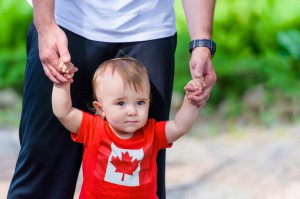

The 2013 report, obtained under an access to information request and marked “secret”, found fewer than 500 reported cases (or 0.14 per cent of total births) per year in which a child was born in Canada with neither parent a citizen or permanent resident.
The Issue
As it stands, anybody born in Canada — save some highly specific cases relating to those working in diplomatic services — attains Canadian citizenship as a birthright, regardless of his or her parents’ status in the country. This has been the case since 1947. The office of Citizenship and Immigration, now under the stewardship of Minister Chris Alexander, confirmed that the government is still reviewing the policy pertaining to perceived “birth tourism”, whereby non-nationals are believed to enter Canada with the intention of having their child born in the country so that the child can attain automatic Canadian citizenship. Once the child reaches 18 years of age, he or she may become eligible to sponsor his or her parents for permanent residency.
“Restricting birth on soil to those who have a permanent status in Canada would remove the incentive for foreign nationals coming to Canada to give birth to their children and gain access to Canada and the benefits of Canadian citizenship, thereby preserving the value of citizenship,” states the report.
If the citizenship by birth provision is tightened, one issue that would need to be addressed by the government is the status of children born “stateless”. That is to say, if a child is born on Canadian soil to foreign-national parents and that child is unable to acquire citizenship by descent from a country other than Canada because of the nationality laws in the parents’ country of citizenship. Such an event is likely to be rare, but as a signatory to the 1961 United Nations Convention on the Reduction of Statelessness, Canada is obliged to reduce the incidence of statelessness by conferring citizenship on individuals born in Canada who would otherwise be stateless.
The birthright provision was left intact when the government of Canada overhauled the Canadian Citizenship Act earlier this year. The changes implemented at that time included a lengthening of the time a permanent resident must wait until he or she can apply for citizenship. If the birthright provision is altered, it would mean a further tightening of the rules on who may become a Canadian citizen.
The Reaction
Given the limited number of cases and a range of other issues requiring attention within Minister Alexander’s Citizenship and Immigration portfolio, critics have suggested that the current government’s policy considerations are based more on ideology than evidence and objectivity. “An impartial observer would conclude that the evidence supports no need for change, given the small number of cases. Yet the recommendation supports the government’s public rhetoric and anecdotes on the need for change,” said Andrew Griffith, a former director general for citizenship and multiculturalism at Citizenship and Immigration Canada.
“Citizenship is something we hold dear, and citizenship by birth is part of the Canadian identity,” said Attorney David Cohen. “The proposed changes make an assumption that in all cases of children being born in Canada to parents who are not residents or citizens of Canada, the parents entered Canada solely to take advantage of our birthright provision. This is unfair on students and temporary foreign workers who entered Canada with the aim of gaining academic or work experience and contributing to the Canadian economy and social life, but who happened to become pregnant while in Canada for legitimate reasons. It would be collective punishment, which goes against the spirit of Canada. We shouldn’t throw the baby out with the bath water.”
As it stands presently, children born in Canada to foreign nationals may be eligible to sponsor their parents for permanent residency in Canada under Family Class sponsorship once they turn 18 years of age. Parents for whom this situation applies can fill out a free immigration assessment and learn how they may immigrate to Canada.
To find out more about applying for Canadian citizenship, click here and learn more about eligibility requirements, rights, and responsibilities.
